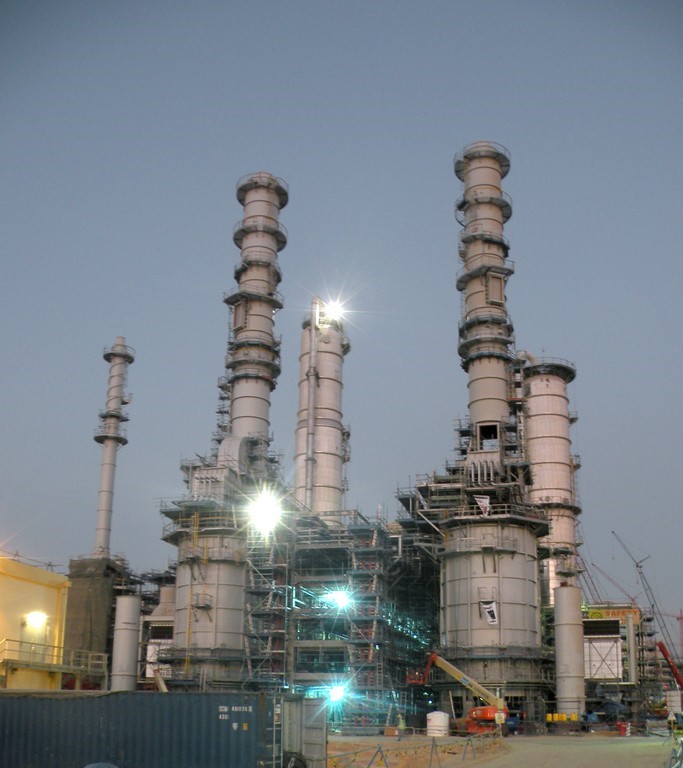COURSE OVERVIEW
DE0259 : Gas Injection Mechanisms

OVERVIEW
| COURSE TITLE | : | DE0259 : Gas Injection Mechanisms |
| COURSE DATE | : | Feb 23 - Feb 27 2025 |
| DURATION | : | 5 Days |
| INSTRUCTOR | : | Mr. Konstantin Zorbalas |
| VENUE | : | Dubai, UAE |
| COURSE FEE | : | $ 8000 |
| Request For Course Outline | ||
Course Description
This practical and highly-interactive course includes practical sessions and exercises where participants will visit the laboratory and they will be introduced to various lab instruments and their calibration process. Practical sessions will be performed using one of the lab equipment in order to apply the theory learnt in the class.
Acid gas injection (AGI) was developed in Western Canada and it has become the method of choice to monetize small reserves of sour natural gas. AGI is an environmentally friend way to deal with hydrogen sulfide producing almost no sulfurous emissions. It also plays an important role in reducing carbon dioxide emissions from gas processing plants. AGI is also an option for larger producer who do not want to produce elemental sulfur. Many of the principles in AGI can be directly transferred to the emerging technology of carbon capture and storage (CCS).
The course is a treatment of the important subject acid gas injection. This course provides the following information: a discussion of the relevant physical properties of hydrogen sulfide, carbon dioxide, and acid gas mixtures; a detailed review of the water content of acid gas mixtures and its relevance to the injection process; selection of an injection zone; considerations for the design of an acid gas compressor; and health and safety concerns. Case studies from actual injection schemes showing the application of the design principles are presented,
many worked on by the instructor.
This course is designed to provide participants with a detailed and up-to-date overview on acid/sun gas injection. It covers the hydrogen sulfide and carbon dioxide; the non-aqueous phase equilibrium; the fluid phase equilibrium involving water; the hydrates, compression and dehydration of acid gas that includes glycol dehydration, molecular sieves and refrigeration; the pressure drop, temperature loss, guidelines, metering and other considerations of pipelines; the injection profiles; the selection of disposal zones; and the health, safety and the environment and monitoring of capital costs.
link to course overview PDFTRAINING METHODOLOGY
This interactive training course includes the following training methodologies:
LecturesPractical Workshops & Work Presentations
Hands-on Practical Exercises & Case Studies
Simulators (Hardware & Software) & Videos
In an unlikely event, the course instructor may modify the above training methodology for technical reasons.
VIRTUAL TRAINING (IF APPLICABLE)
If this course is delivered online as a Virtual Training, the following limitations will be applicable:
| Certificates | : | Only soft copy certificates will be issued |
| Training Materials | : | Only soft copy materials will be issued |
| Training Methodology | : | 80% theory, 20% practical |
| Training Program | : | 4 hours per day, from 09:30 to 13:30 |
RELATED COURSES

DE0805 : Coring and Core Analysis
- Date: Jan 11 - Jan 15 / 3 Days
- Location: Doha, Qatar
- Course Details Register

DE0972 : Well Integrity Management
- Date: Jan 11 - Jan 15 / 3 Days
- Location: Doha, Qatar
- Course Details Register

DE0815 : Water Injection Technology: Water Flooding A-Z
- Date: Jan 11 - Jan 15 / 3 Days
- Location: Doha, Qatar
- Course Details Register

DE0624 : Understand Water Flooding, Reservoir Souring and Water Breakthrough
- Date: Jan 11 - Jan 15 / 3 Days
- Location: Doha, Qatar
- Course Details Register
